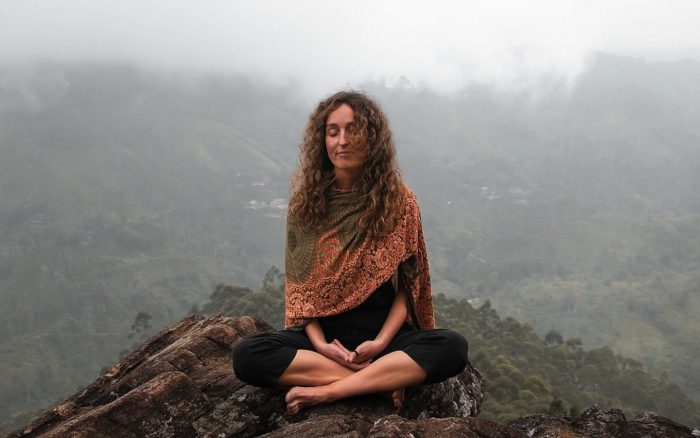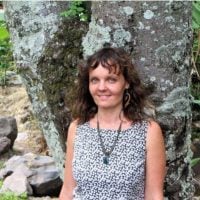As a hypnotherapist, I’m always interested in how deeply our subconscious stories can shape our experiences.
I recently took part in a deep-dive breathwork course, led by Jenika Bronson, in the magical village of San Marcos, by Lake Atitlan, Guatemala.
We were initiated into a powerful Kriya that has been accredited with the potential to break through and rewire your subconscious patterns.
I’ve taken part in enough healing ceremonies, workshops, and courses to know I should have no expectations with these things. But the first thing I noticed was how easily lingering physical aches and pains just dropped away—almost miraculously.
I’ve had a strong yoga practice for several years. Recently my morning yoga practice had become a stiff struggle with lots of gentle stretching of arthritic joints and achy muscles.
My practice was reborn. My old Ashtanga flexibility bounced back; I was so energized that I was inspired to add in a few HIIT-style burpees and jump squats.
As the course continued, I noticed how dramatically my lung capacity was increasing. My energy was continuing to increase, and my metabolism was speeding up. I was eating much more than before but actually lost a little weight.
I learned how impactful a full exhale is—how blasting out all that carbon dioxide between full-capacity inhales of oxygen revitalizes the whole system. Oxygen reduces inflammation, increases collagen information, and helps new blood vessels form. The physical healing that lies within our own breath is vast.
We were warned that emotionally this could be an intense process. Triggers could come up; memories could resurface; dreams could get weird.
We were advised to journal our experiences, practice being the observer of our reality, and not take ourselves or anything else too seriously for the duration of the course.
I noticed myself feeling increasingly sensitive to a familiar old story of abandonment—a sense of panic and not feeling safe began to arise.
On the third day of the course, we practiced empty lung retentions—a full exhale and hold when it’s empty. I’m a big fan of full retentions, but the empty retentions felt awful. Almost instantly, I felt panic surge my system and an urge to cry.
As we continued with the practice, an image came to me. A distant memory: when I was a baby, my parents had found me struggling to breathe, some complications arose from croup (a common ailment in babies), and I was rushed to the hospital.
I’d had no conscious memories of this experience. I’d just heard the story from my parents—never really gave it much thought.
But here in empty lung retention, the memory of being in the hospital—the pain in my throat, the struggle to breathe, the fear, the bewilderment, and a desperate crying out for my parents who didn’t seem to be there—all came flooding back. I was immersed in this sense of helplessness and total abandonment. This unconscious memory had left a deep imprint on me, and now it was becoming conscious.
Round two of empty lung retention and another memory popped in. When I was about five, I fell into a duck pond head-first on a sunny day in the park. That sensation of being unable to breathe surged back. Then, my mum dived in after me and scooped me out.
It was a story I’d heard before—how my mum jumped in and saved me and how we both spent the rest of the day at the park in soaking, wet clothes.
And just like that, the narrative began to rewrite itself.
I hadn’t been abandoned. I had been saved. My parents rushed me to a hospital to get me the best care and attention possible.
At that moment, I sat with a sensation that I can only describe as sunshine flooding my entire system. A narrative of feeling unseen and unsupported started to unravel. At that moment, I held the deepest appreciation and recognition of how loving and supportive my parents have endeavored to be.
Since the course, I’m continuing with the breathwork. Physically, I’m feeling infinitely better. Emotionally, my perspective has started to shift.
For the first time in my life, I feel like I’m coming from a center of deeply rooted strength. My whole life experience is dramatically recalibrating. It’s like building a house on strong foundations instead of wet sand.
I’m noticing the ripple effect.
What we change within will always shift what we experience outwardly.
My creativity has exploded, freed from the shackles of a subconscious insecurely grappling for validation and emotional security. Personal relationships are becoming easier, more natural. This sense of security in myself, in my own body, my own company is getting stronger. I notice that I’m not looking to others for validation; I’m genuinely enjoying their company.
I’m fascinated by the power of the story.
Our stories can shape our entire life experience.
Our stories are powerfully interlinked.
What we believe, the word we speak, the actions we take powerfully affect others.
They shape our societies, which in turn shapes other people’s life experiences. A person does not experience racism because of their own internal stories. Racism exists because white supremacists perpetuated a story, and others believed it, acted on it, or looked the other way.
But a story can always be reviewed and rewritten.

 Share on bsky
Share on bsky







Read 8 comments and reply